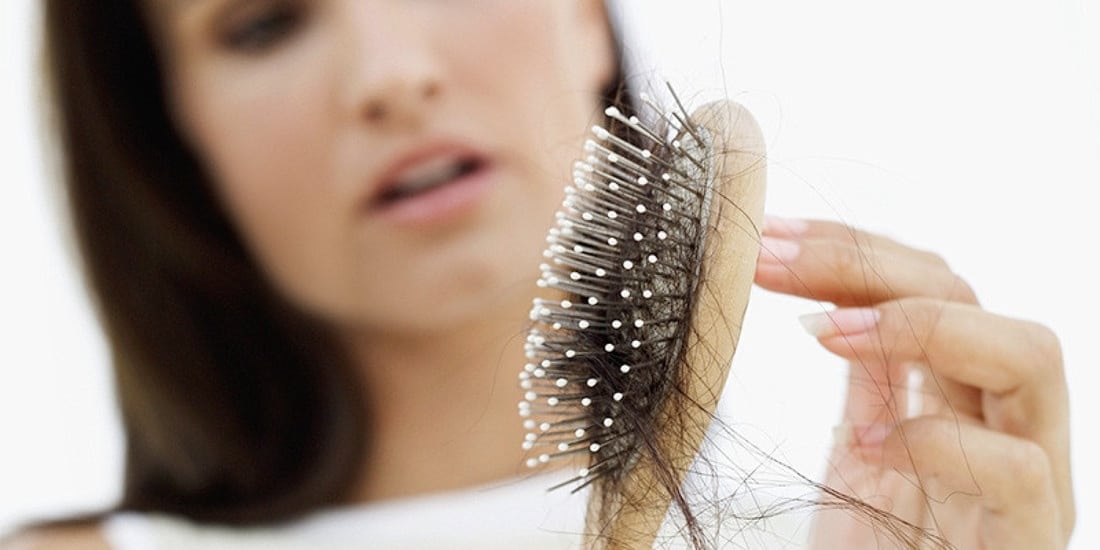
Dandruff also known as Seborrhea of the scalp, is the most common itchy, scaly condition of the scalp. Recommended treatments include shampoos containing zinc, pyrithione, selenium sulfide, salicylic acid, and sulphur. Resistant cases may require a prescription shampoo.
Dry, brittle hair is associated with the use of permanent hair solutions, excessive sun exposure, chlorine, or an underlying medical disorder. Correct any medical conditions, avoid offending agents, and use hot oil treatments along with oral Biotin to help with breakage.
Oily Hair is associated with oiliness of the skin and may increase during puberty and pregnancy. Frequent shampooing with salicylic acid shampoos and avoidance of conditioners will help to control oiliness.
Hair Loss – human hair growth is a dynamic process that involves an active growing phase, a resting phase, and a shedding phase. The scalp has 100,000 hairs, of which 85% are in the growing phase. The scalp sheds 125 hairs per day.
The hair follicle is subjected to numerous stresses which can cause hair disorders, either hair loss or excessive hair growth. Excessive hair growth (hirsutism) is primarily seen in women who have an excessive response to their level of male hormones resulting in increased facial and body hair but thinning of the scalp hair. Acne and irregular menses are often seen with this condition. Hormonal testing and the treatment of the imbalance will correct the problem.
There are three main causes of hair loss:
- Following a period of stress or illness (3-5 months afterward)
- Genetic or inherited (both male and female pattern hair loss)
- Secondary to infection (such as impetigo and ringworm)
Contributing factors to hair loss include iron deficiency, hormonal changes, diabetes, thyroid disorders, lupus, and medications such as lithium, blood thinners, vitamin A, antihyertensives, diuretics, beta blockers, and chemotherapy.
Recommended treatments include Biotin, multiple vitamins, Rogaine, Propecia, hormonal therapy and hair transplants.

